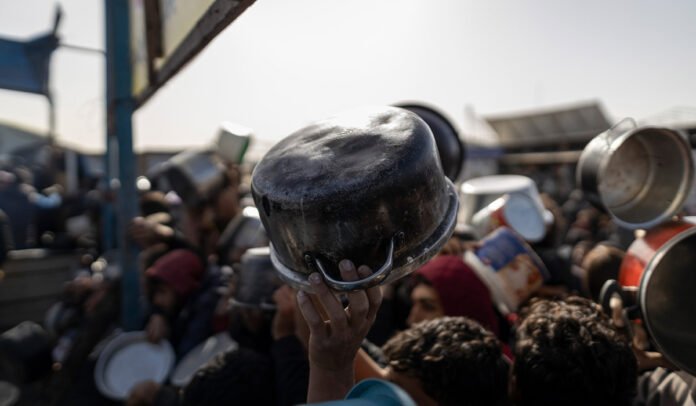In a grave development, a UN-supported report has officially confirmed that famine is now a reality in Gaza Governorate, a finding that marks a tragic new low in the ongoing humanitarian crisis in the region. The Integrated Food Security Phase Classification (IPC), a leading international body for monitoring food security, released a report on August 22nd (Friday) stating that over half a million people in the Gaza Strip are facing catastrophic conditions characterised by extreme hunger, destitution, and widespread death. This is the first time in modern history that a famine has been declared in the Middle East, a stark reminder of the human cost of the prolonged conflict.
The IPC’s findings, which are based on a rigorous analysis of data from the region, directly attribute the famine to the deliberate restrictions on humanitarian aid. The report concluded that the crisis is a “man-made disaster,” a sentiment echoed by UN Secretary-General António Guterres, who described the situation as a “moral indictment” and a “failure of humanity itself.” The IPC’s review found that all three thresholds for declaring a famine—extreme food deprivation, acute malnutrition, and starvation-related deaths—have been breached in the Gaza Governorate.
The declaration has intensified international condemnation and pressure on all parties to the conflict to act immediately. The UK Foreign Secretary, David Lammy, released a statement calling the situation “utterly horrifying” and “wholly preventable,” asserting that the “Israeli government’s refusal to allow sufficient aid into Gaza has caused this man-made catastrophe.” Similarly, the European Commission issued a statement that famine is “no longer a risk in Gaza. It is a reality.” These statements highlight the growing consensus that the crisis is a direct result of human actions, not a natural disaster.
Israel has strongly rejected the findings, with a statement from the Foreign Ministry calling the IPC report an “outright lie” and maintaining that Israel “does not have a policy of starvation.” The government has continued to point to its own efforts to facilitate aid deliveries. However, humanitarian agencies and UN officials on the ground have repeatedly stated that the aid entering the territory is a fraction of what is needed and that aid convoys are often delayed or turned back, leading to a breakdown in distribution.
The IPC report also warns that the famine is projected to spread to the governorates of Deir al-Balah and Khan Younis in the coming weeks if conditions do not change. This would put hundreds of thousands more lives at risk. The UN and numerous humanitarian organisations have called for an immediate and sustained ceasefire to allow for a massive and unimpeded surge of food, water, medicine, and fuel. They have also demanded the immediate and unconditional release of all hostages. The situation is particularly dire for children, with UNICEF and the WHO reporting a catastrophic increase in acute malnutrition among the youngest population. The international community is being urged to take decisive action to prevent a further escalation of this crisis and to ensure that aid reaches all those in need without any restrictions.






















